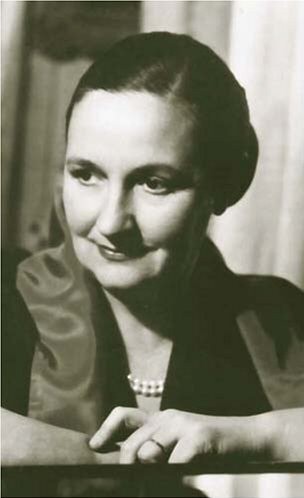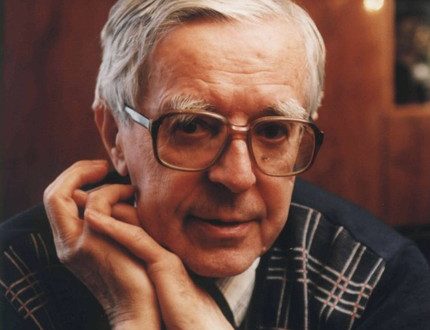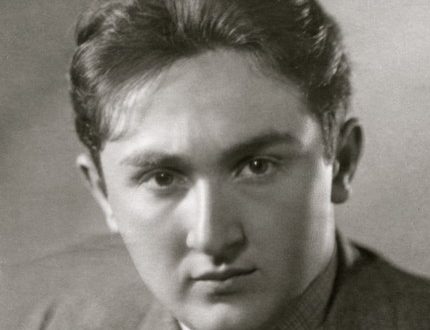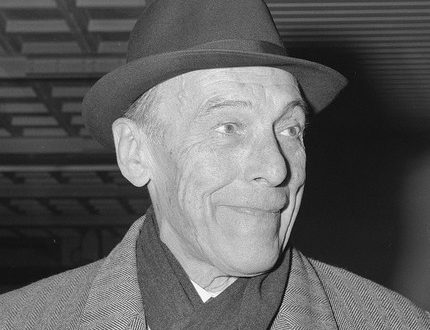
Gina Bachauer |
Gina Bachauer

In the first half of the 20th century, the appearance of female pianists was not as common as it is now, in the era of women’s “emancipation” in international competitions. But their approval in concert life became an all the more noticeable event. Among those chosen was Gina Bachauer, whose parents, immigrants from Austria, lived in Greece. For more than 40 years she has maintained a place of honor among the concertgoers. Her path to the top was by no means strewn with roses – three times she had, in fact, to start all over again.
A five-year-old girl’s first musical impression is a toy piano given to her by her mother for Christmas. Soon it was replaced by a real piano, and at the age of 8 she gave her first concert in her hometown – Athens. Two years later, the young pianist played Arthur Rubinstein, who advised her to seriously study music. Years of studies followed – first at the Athens Conservatory, which she graduated with a gold medal in the class of V. Fridman, then at the Ecole Normal in Paris with A. Cortot.
Barely having time to make her debut in Paris, the pianist was forced to return home, as her father went bankrupt. In order to support his family, he had to temporarily forget about his artistic career and start teaching piano at the Athens Conservatory. Gina maintained her pianistic form without much confidence that she would be able to give concerts again. But in 1933 she tried her luck at a piano competition in Vienna and won a medal of honor. In the next two years, she had the good fortune to communicate with Sergei Rachmaninov and systematically use his advice in Paris and Switzerland. And in 1935, Bachauer performed for the first time as a professional pianist in Athens with an orchestra conducted by D. Mitropoulos. The capital of Greece at that time was considered a province in terms of cultural life, but the rumor about a talented pianist began to spread gradually. In 1937, she performed in Paris with Pierre Monte, then gave concerts in the cities of France and Italy, received an invitation to perform in many cultural centers of the Middle East .
The outbreak of the World War and the occupation of Greece by the Nazis forced the artist to flee to Egypt. During the war years, Bachauer not only does not interrupt his activity, but, on the contrary, activates it in every possible way; she gave more than 600 concerts for the soldiers and officers of the allied armies who fought against the Nazis in Africa. But only after fascism was defeated, the pianist began her career for the third time. In the late 40s, many European listeners met her, and in 1950 she performed in the USA and, according to the famous pianist A. Chesins, “literally hypnotized the New York critics.” Since then, Bachauer has lived in America, where she enjoyed wide popularity: the artist’s house kept symbolic keys to many US cities, presented to her by grateful listeners. She regularly visited Greece, where she was revered as the greatest pianist in the history of the country, performed in Europe and Latin America; Scandinavian listeners will remember her joint concerts with the Soviet conductor Konstantin Ivanov.
The reputation of Gina Bachauer was based on the undoubted originality, freshness and, paradoxical as it may sound, old-fashionedness of her playing. “She does not fit into any school,” wrote such a connoisseur of the piano art as Harold Schonberg. “In contrast to many modern pianists, she developed into a pure romance, an undoubted virtuoso; like Horowitz, she is an atavism. But at the same time, her repertoire is unusually large, and she plays composers who, strictly speaking, cannot be called romantics. German critics also claimed that Bachauer was “a pianist in the great style of the virtuoso tradition of the XNUMXth century.”
Indeed, when you listen to the recordings of the pianist, sometimes it seems that she is as if “born late”. It was as if all the discoveries, all the currents of the world pianistic, more broadly, the performing arts had passed her by. But then you realize that this also has its own charm and its own originality, especially when the artist performed the monumental concertos of Beethoven or Brahms on a grand scale. For it cannot be denied sincerity, simplicity, intuitive sense of style and form, and at the same time by no means “feminine” strength and scale. No wonder Howard Taubman wrote in The New York Times, reviewing one of Bachauer’s concertos: “Her ideas come from how the work was written, and not from those ideas about it that were introduced from outside. She has so much power that, being able to offer all the necessary fullness of sound, she is able to play with exceptional ease and, even in the most violent climax, maintain a clear connecting thread.
The virtues of the pianist were manifested in a very wide repertoire. She played dozens of works – from Bach, Haydn, Mozart to our contemporaries, without, in her own words, certain predilections. But it is noteworthy that her repertoire included many works created in the XNUMXth century, from Rachmaninov’s Third Concerto, which was rightly considered one of the pianist’s “horses”, to piano pieces by Shostakovich. Bachauer was the first performer of concertos by Arthur Bliss and Mikis Theodorakis, and many works by young composers. This fact alone speaks of her ability to perceive, love and promote modern music.
Grigoriev L., Platek Ya.





